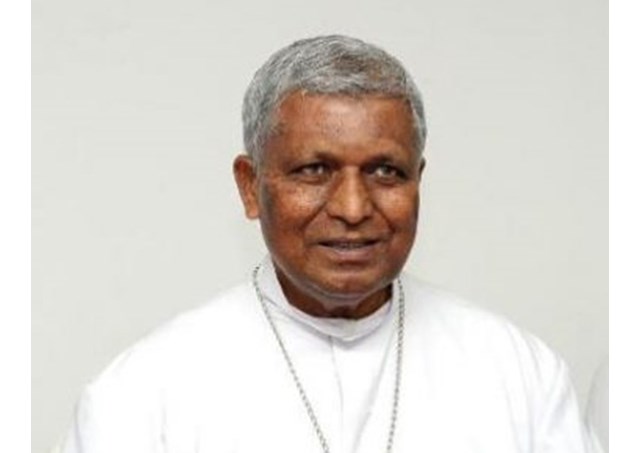
Kerala bishop opposes bill to govern church property

The Latin rite archbishop of Kerala, in a letter dated April 15 has urged the Government not to interfere in the administration of church properties.
Archbishop M. Soosa Pakiam, president of Kerala Catholic Bishops’ Council (KCBC), wrote to the secretary of the Kerala State Minority Commission to assert the fundamental right of Christians to manage and administer church property.
The prelate was responding to an email letter the secretary sent to KCBC seeking its response to the Kerala Christian Church Properties and Institutions Trust Bill 2009. Bishop Pakiam said he has consulted all dioceses, religious congregations and lay organization.
Quoting article 26 of the Constitution and what it entails the prelate asserts that the right to maintain included the right to administer the institutions. The article 26 guarantees not only the right to own and acquire movable and immovable properties but also the right to administer such property in accordance with law, he adds.
The Church, he says, has the fundamental right to administer its properties in accordance with the Canon law applicable to administration of Church properties. Only if such provisions in the Canon law and their application are against public order, morality and health, the state can interfere.
Observing that the proposers of the Bill have not raised such allegations, the archbishop describes it as unconstitutional as it violates the Article 26 of the Constitution. It is also against the spirit of secularism enshrined in the Constitution, he adds.
Archbishop explains to the secretary that canon law’s codified rules govern the administration of church properties and institutions. Canon law has also provisions to deal with violation of its rules and offers remedies.
The bishop says the Article 26 stipulates that only the members of the religious denomination can decide how its properties and institutions are administered and which law to use.
The letter also explains that the right to administer Catholic Church properties vests in the bishop of a diocese. He does it through various diocesan officials with proper consultation with parish council and diocesan pastoral council, which the prelate says is a form of democracy.
Archbishop Pakiam expresses the Church’s fear that the new law will adversely affect the “present peaceful and orderly administration of Church properties and institutions” as it opens to more disputes and litigations. “We also suspect that behind the Bill there is a hidden agenda to bring the administration of Church properties and institutions under Government control,” he added.
“We believe that the concern of the State Government should be to provide better governance to the people by promoting more democratic, efficient and just administration of the State, instead of denying the Christians their fundamental rights under Art.26 of the Constitution of India,” he added. (mattersindia.com)
| All the contents on this site are copyrighted ©. |


